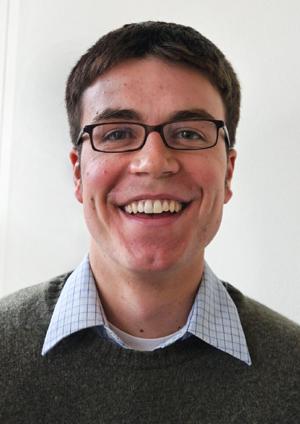
By Michael Rossmann
Many college students I know just left to spend a semester studying abroad, which makes me think of my own experiences of leaving at this time of year to live in different cultures.
In what was one of the best and most significant experiences of my life, I spent six months studying in East Africa during college. The media often paints a negative picture of Africa, and yet I experienced tremendous goodness and beauty, especially through living with a local Ugandan family.
Still, going to East Africa led me to experience more deeply the extreme injustice in the world and the tremendous suffering of so many. For someone who prides himself on the capacity for always seeing the glass half-full, my experiences often tested my ability to remain optimistic.
The culmination of this came in visiting Rwanda. Nearly 1 million Rwandans were killed by their own countrymen during the genocide of 1994. Being there was challenging, particularly in visiting the museum built to teach about this atrocity. In one video clip, a woman said that from her perspective, 5 percent of the people in Rwanda were good while the genocide was going on, 5 percent were neutral, and 90 percent were evil. Moreover, this was the most Catholic country in all of Africa.
I kept asking myself, “How could so many Catholics participate in this?” Walking on ground where so many people were massacred inevitably leads to despair, which is made worse in knowing that we have said “never again” after previous crimes against humanity.
Still, I left Rwanda more convinced than ever that we are called to hope, even in the most difficult of times. The theological virtue of hope is much more than optimism; hope flows from the conviction that God is at work in our lives and in the world.
I drew inspiration from Cynthia, a woman of tremendous faith who worked at the genocide museum. Cynthia lost both of her parents and five of her six siblings in the genocide. Yet, she held no grudge for what the murderers did to her family and was working at the museum to teach the world about what happened so that we could learn from it. Cynthia exemplifies the transformative power of faith that enables us to hope even when the world seems so dark.
Though I struggled with some of what I saw and was unsure of how to make sense of the injustice, because of this faith exemplified by people like Cynthia and so many other East Africans I encountered, I ultimately chose to hope. I chose to hope that though people can commit such atrocities, we are still basically good. I chose to hope that though people sin — and sometimes in drastic ways such as participating in genocide — God continues to work with us and our imperfections.
Jim Wallis, the editor of Sojourners, writes, “The only difference between the cynics and the saints is the presence, power and possibility of hope. Hope is not a feeling; it is a decision. And the decision for hope is based on what you believe at the deepest levels — what your most basic convictions are about the world and what the future holds — all based on your faith.”
This does not mean that we become naïve and think that everything will be perfect or that we ignore global issues; we must face these problematic realities. But, if we are really people of faith, we will become as Desmond Tutu says, “prisoners of hope.” Faith in the resurrection and faith in God who unconditionally loves us calls us to hope. We all become discouraged in our lives and struggle to make sense of our own and others’ suffering.
If, however, we are ever to change the world and live out our vocations as people of faith, we must first choose to hope. We do not simply think everything will be all right; we must act. But the decision to hope, ultimately based on our faith and our deepest convictions, is what will lead us to this action.
(Michael Rossmann is a Jesuit scholastic at Loyola University Chicago and a 2003 graduate of Regina Catholic Education Center in Iowa City. He can be contacted at rossmann.michael@gmail.com).








